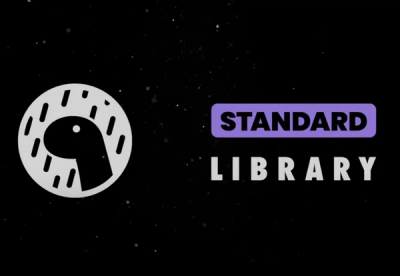Discord API Types








Simple type definitions for the Discord API.
Installation
Install with npm / yarn / pnpm:
npm install discord-api-types
yarn add discord-api-types
pnpm add discord-api-types
Usage
You can only import this module by specifying the API version you want to target. Append /v* to the import path, where the * represents the API version. Below are some examples
const { APIUser } = require('discord-api-types/v10');
import { APIUser } from 'discord-api-types/v10';
You may also import just certain parts of the module that you need. The possible values are: globals, gateway, gateway/v*, payloads, payloads/v*, rest, rest/v*, rpc, rpc/v*, utils, utils/v*, voice, and voice/v*. Below are some examples
const { GatewayVersion } = require('discord-api-types/gateway/v10');
import { GatewayVersion } from 'discord-api-types/gateway/v10';
Note: The v* exports (discord-api-types/v*) include the appropriate version of gateway, payloads, rest, rpc, and utils you specified, alongside the globals exports
Deno
We also provide typings compatible with the deno runtime. You have 3 ways you can import them:
- Directly from GitHub
import { APIUser } from 'https://raw.githubusercontent.com/discordjs/discord-api-types/main/deno/v10.ts';
- From deno.land/x
import { APIUser } from 'https://deno.land/x/discord_api_types/v10.ts';
- From skypack.dev
import { APIUser } from 'https://cdn.skypack.dev/discord-api-types/v10?dts';
Project Structure
The exports of each API version is split into three main parts:
-
Everything exported with the API prefix represents a payload you may get from the REST API or the Gateway.
-
Everything exported with the Gateway prefix represents data that ONLY comes from or is directly related to the Gateway.
-
Everything exported with the REST prefix represents data that ONLY comes from or is directly related to the REST API.
-
For endpoint options, they will follow the following structure: REST<HTTP Method><Type><Query|(JSON|FormData)Body|Result> where the type represents what it will return.
-
For example, RESTPostAPIChannelMessageJSONBody or RESTGetAPIGatewayBotInfoResult.
-
Some exported types (specifically OAuth2 related ones) may not respect this entire structure due to the nature of the fields. They will start with either RESTOAuth2 or with something similar to REST<HTTP Method>OAuth2
-
If a type ends with Result, then it represents the expected result by calling its accompanying route.
- Types that are exported as
never usually mean the result will be a 204 No Content, so you can safely ignore it. This does not account for errors.
-
Anything else that is miscellaneous will be exported based on what it represents (for example the REST route object).
-
There may be types exported that are identical for all versions. These will be exported as is and can be found in the globals file. They will still be prefixed accordingly as described above.
A note about how types are documented: This package will add types only for known and documented properties that are present in Discord's API Documentation repository,
that are mentioned in an open pull request, or known through other means and have received the green light to be used.
Anything else will not be documented (for example client only types).
With that aside, we may allow certain types that are not documented in the API Documentation repository on a case by case basis.
They will be documented with an @unstable tag and are not subject with the same versioning rules.









